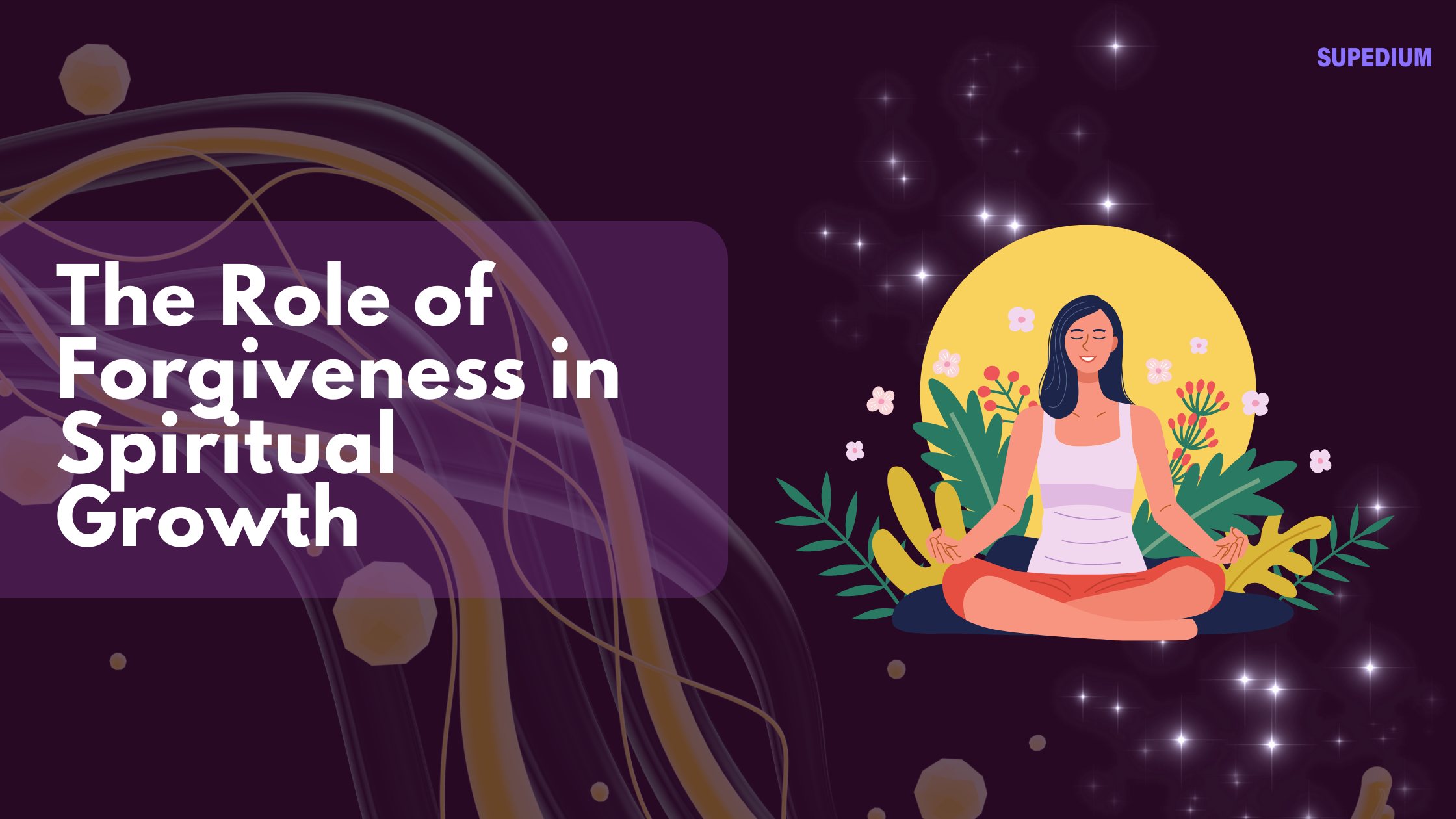Table of Contents
![]()
Introduction
Forgiveness is a concept that transcends cultural and religious boundaries, deeply embedded in human interactions and spiritual practices. Defined generally as the act of letting go of resentment or anger towards someone who has caused harm, forgiveness can be understood differently within various spiritual and religious contexts. Spiritual growth, on the other hand, refers to the process of personal transformation and the alignment with higher values or a deeper understanding of one’s purpose in life. Exploring the connection between forgiveness and spiritual growth reveals how this practice is crucial for personal development and spiritual fulfillment.
The Concept of Forgiveness
Historical and Cultural Perspectives
Forgiveness has been a significant theme throughout history. In ancient Greek philosophy, for example, Aristotle discussed the virtue of magnanimity, which involves forgiving others as a sign of moral greatness. In many Indigenous cultures, forgiveness is seen as a way to maintain harmony within the community.
Major World Religions
- Christianity: Forgiveness is central to Christian teachings. The teachings of Jesus Christ, such as those found in the Sermon on the Mount, emphasize the importance of forgiving others. The Parable of the Prodigal Son illustrates the grace of forgiveness and its role in personal and communal relationships.
- Islam: Forgiveness is a key aspect of Islamic teachings, reflecting the attributes of mercy and compassion that are central to the faith. The Quran frequently discusses the benefits of forgiving others and the rewards associated with it.
- Buddhism: In Buddhism, forgiveness is closely linked to the concept of overcoming attachment and suffering. Practices such as Metta meditation focus on cultivating loving-kindness and compassion, which are essential for personal growth and enlightenment.
- Hinduism: Forgiveness in Hinduism is seen as a way to overcome ego and achieve spiritual enlightenment. Stories from epics like the Ramayana and the Mahabharata highlight forgiveness as a means to transcend personal grievances and align with divine principles.
Psychological Aspects
Psychologically, forgiveness involves both cognitive and emotional components. It requires a shift in perspective, allowing individuals to release feelings of anger and resentment. Research indicates that forgiveness can lead to significant improvements in mental health, including reduced stress, anxiety, and depression.
Types of Forgiveness
- Self-Forgiveness: This involves coming to terms with one’s own mistakes and letting go of self-criticism. It is crucial for personal growth, as it allows individuals to move forward without being held back by guilt or shame.
- Forgiveness of Others: This is the process of letting go of negative feelings towards someone who has wronged you. It often requires understanding the other person’s perspective and acknowledging their humanity.
- Seeking Forgiveness from Others: This involves acknowledging one’s own mistakes and asking for forgiveness from those who have been affected. It is an important step in mending relationships and restoring trust.
Forgiveness as a Path to Spiritual Growth
Forgiveness and Personal Transformation
Forgiveness can lead to profound personal transformation. By releasing negative emotions such as anger and resentment, individuals create space for positive feelings such as compassion and empathy. This emotional shift fosters greater self-awareness and self-acceptance, which are essential components of spiritual growth.
Forgiveness and Inner Peace
The act of forgiving can significantly reduce feelings of guilt, anger, and resentment. This emotional release often leads to a greater sense of inner peace and contentment. By letting go of past grievances, individuals can achieve a more serene and balanced state of mind, which is conducive to spiritual development.
Forgiveness and Alignment with Spiritual Values
Forgiveness helps individuals align their actions with spiritual or religious teachings. For many spiritual paths, forgiveness is not just a personal practice but a reflection of living according to higher values. By embodying forgiveness, individuals align themselves with a greater sense of purpose and moral integrity.
The Process of Forgiveness
Understanding and Acceptance
The journey towards forgiveness begins with recognizing the need for it. This involves accepting the reality of the situation and the emotions it has generated. Acknowledging hurt and anger is the first step in moving towards forgiveness.
Emotional Work
Forgiving someone requires processing and releasing negative emotions. This may involve building empathy and understanding towards the person who has caused harm. Emotional work often includes reflecting on the circumstances and seeking to understand the motivations behind the other person’s actions.
The Act of Forgiving
Deciding to forgive is a crucial step. This may involve expressing forgiveness verbally or through actions. Moving forward may also require rebuilding trust, especially in cases where the relationship is ongoing.
Challenges and Barriers to Forgiveness
Personal Obstacles
Forgiveness can be challenging due to personal fears and vulnerabilities. Some individuals may struggle with the perception that forgiveness means condoning wrongdoing or that it requires them to be vulnerable.
Cultural and Social Influences
Cultural and societal attitudes towards forgiveness can impact its practice. In some cultures, forgiveness may be undervalued or misunderstood, particularly in the context of historical grievances or collective trauma.
Practical Difficulties
Forgiving someone can be complicated by the nature of the relationship and the specifics of the situation. In some cases, reconciliation may not be possible, which can make the process of forgiveness more challenging.
Examples from Spiritual Traditions
Christianity
Christian teachings on forgiveness emphasize its importance in both personal and communal contexts. Jesus’ teachings on forgiveness are seen as a model for Christian life, highlighting the transformative power of letting go of grievances.
Buddhism
In Buddhism, forgiveness is linked to the practice of overcoming attachment and achieving enlightenment. Techniques such as Metta meditation cultivate compassion and are used to foster forgiveness towards oneself and others.
Islam
Forgiveness in Islam reflects the attributes of mercy and compassion. The Quran encourages believers to forgive others as a way to align with divine mercy and improve personal and communal relationships.
Hinduism
Hindu teachings on forgiveness focus on overcoming ego and achieving spiritual enlightenment. Stories from Hindu epics demonstrate the significance of forgiveness in transcending personal grievances and aligning with divine principles.
Practical Applications
Forgiveness in Daily Life
Forgiveness can be integrated into daily life through practices such as mindfulness and self-reflection. Techniques for fostering forgiveness include journaling, seeking therapy, and engaging in empathetic dialogue.
Forgiveness in Spiritual Practice
Incorporating forgiveness into spiritual practices can enhance one’s spiritual journey. This might include incorporating forgiveness into meditation, prayer routines, or participating in rituals that emphasize reconciliation and healing.
Conclusion
Forgiveness plays a vital role in spiritual growth by facilitating personal transformation, fostering inner peace, and aligning individuals with higher spiritual values. The process of forgiveness, while challenging, can lead to profound benefits for both personal and spiritual development. Reflecting on personal experiences with forgiveness and exploring its role in various spiritual traditions can offer valuable insights into its transformative power.
References
Academic Sources
Books and articles on the psychological and spiritual aspects of forgiveness provide valuable insights into its impact on personal growth and well-being.
Religious Texts
Sacred texts from various religions offer teachings and stories that highlight the role of forgiveness in spiritual life.
Psychological and Philosophical Studies
Research on the effects of forgiveness on mental health and relationships can further illuminate its importance in achieving a balanced and fulfilling life.
Share This





Be the first to comment